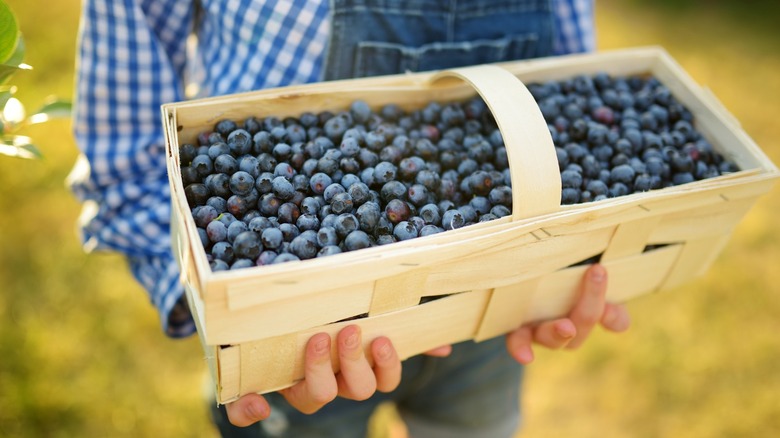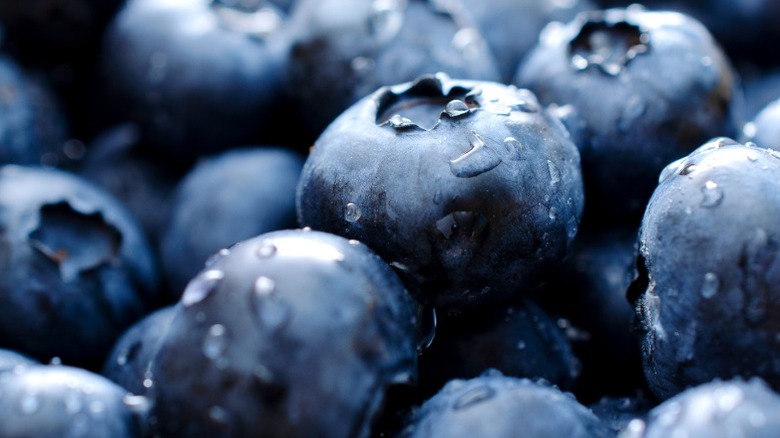The Wholesome Origin Story Of How Mississippi's State Fruit Became The Blueberry
Every U.S. state has an official state flag, bird, and license plate, usually telling us something special about each place. Georgia is known for its peaches, which is why the fruit decorates the plates of its vehicles, and it's the state fruit. Florida has its oranges, of course. But not every state has an official state fruit — such was the case for Mississippi — until a passionate group of schoolchildren decided to make a change.
At Mannsdale Upper Elementary School in Madison, Mississippi, two fourth-grade classes were inspired by a classroom discussion on civic engagement. They learned that a group of kids in Kansas lobbied for their state's fruit to be the plum, and the Mississippians had to wonder: Did their own state have a fruit — and was it possible to declare one? From this curiosity, "Project Blueberry" was born.
Teacher Lisa Parenteau decided to encourage her students to pursue legislation for an official state fruit. While the children played during recess, they came up with ideas for what the state fruit should be, and, in typical fourth-grade fashion, polled their favorite fruits. Parenteau had another idea: choosing a fruit based on Mississippi's unique history and agriculture. Her students agreed that the blueberry fit the bill. And after weeks of hand-made letters and signs, they finally received a verdict from the state. With full bipartisan approval, Governor Tim Reeves signed the legislation in 2023 making blueberries the official state fruit. A happy win for American democracy.
Why Project Blueberry makes so much sense
Agriculture is a strong part of Mississippi's economy, contributing billions of dollars and supporting hundreds of thousands of jobs each year. As the poorest U.S. state in 2024 (per the World Population Review), it's important for people to have access to fresh produce and job opportunities. In fact, there's such a great demand for blueberries that farmers can hardly keep up. The honor of producing the most blueberries of any state goes to Washington.
The blueberry's role in Mississippi's agriculture is significant. Not only does it bring in millions of dollars across thousands of farm acres, but it also helps preserve an important indigenous plant life. Wild blueberries are native to U.S. soil, and Mississippi is home to a species called the rabbiteye blueberry. These naturally blue fruits make a great state mascot. Thanks to those Madison County fourth-graders, the power of education, and the blueberry, are able to get the recognition they deserve.

